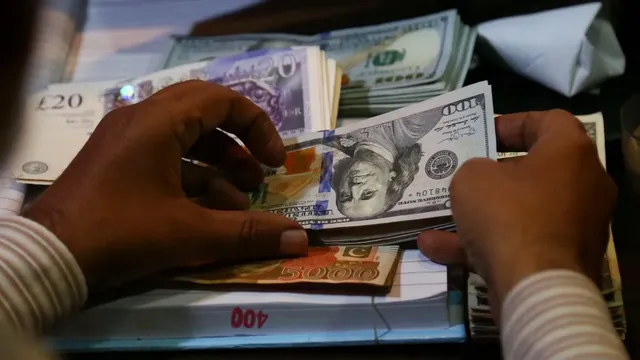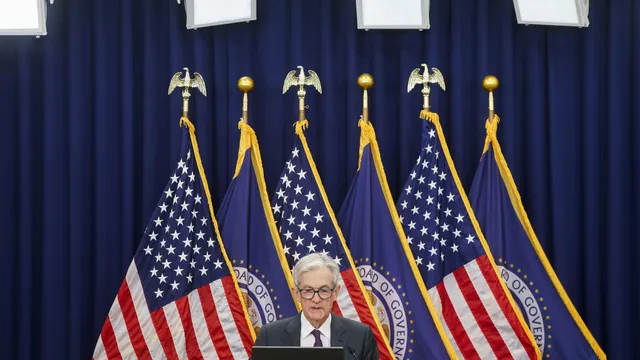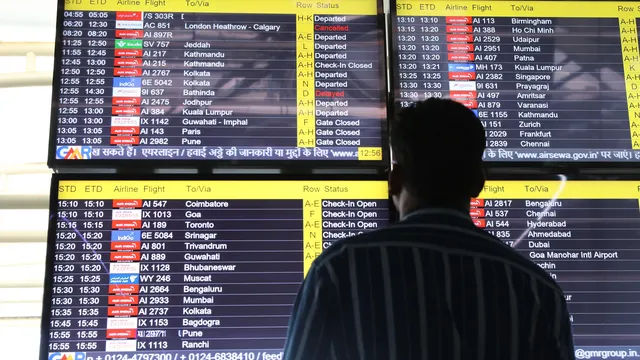According to a leading economic researcher, this is likely to affect energy and fuel prices, food prices, and infrastructure and social program costs.
This means higher prices for consumers.
Asian countries have no real alternative to oil from the Persian Gulf, which means that instability in that region is likely to put pressure on thousands of miles away.
Countries in the Indo-Pacific region that rely on oil imports will have to spend more, but many of them do not have the resources to continue borrowing without cutting spending in other areas," said Joaquin Vespignani, associate professor of finance at the University of Tasmania.
“For the average person... inflation will increase significantly, while incomes may decline. So you have a double whammy,” he said.
Prices have already risen by 3% following the US bombing of an Iranian nuclear facility.
Is it likely that oil prices will rise further?
Yes, according to Dr. Vespigniani. In the early stages of the war between Israel and Iran, markets reacted with a 5% “risk premium,” he said.
"High-risk scenario forecasts suggest that the price of Brent crude could exceed $100 per barrel if supplies from Iran are disrupted and strategic transport routes are compromised. If the US becomes more actively involved, particularly through direct intervention or increased sanctions on Iranian crude exports, we could see a significant and prolonged rise in oil prices through 2025.“
”The impact could be very significant," Dr. Vespignani said.
“India, Indonesia, and most countries in Southeast Asia are heavily dependent on oil imports, much of which comes from the Middle East,” he added.
India imports about 85% of its crude oil, Indonesia about 60%, and Southeast Asia over 70%. Countries such as Thailand, the Philippines, and Vietnam are highly exposed to price increases.
“If prices rise by $10–20 per barrel for an extended period, this will increase the current account deficit, raise fuel subsidies, and lead to broader inflation,” said Dr. Vespignani.
In India, for example, a 25% increase in world oil prices would raise oil import costs by about $30–40 billion a year, putting significant pressure on the current account deficit, the rupee, and domestic inflation.
Dr. Vespigniani emphasized that countries with limited financial resources and external vulnerabilities will be forced to choose between inflation control, currency stability, and sustainable debt management.
“[This] could also slow economic growth, reduce disposable incomes, and create new pressures on public finances—especially in economies still recovering from Covid-19 and global food price inflation,” he said.
What will happen if Iran blocks the Strait of Hormuz?
Iran has approved a measure to close the Strait of Hormuz, which still needs approval from the Supreme National Security Council, a body led by Ali Khamenei.
The measure is considered Iran's most effective threat to strike at the West.
The Strait of Hormuz is the most critical oil chokepoint in the world, with about 20% of the world's oil passing through it. Analysts agree that if Iran blocks or significantly restricts shipping, the immediate result would be a serious supply shock.
The price of crude oil could jump well above $90–105 per barrel, depending on the duration and severity of the blockade, Dr. Vespignani explained.
“India, Indonesia, and most countries in Southeast Asia will be among the hardest hit due to their geographical proximity and trade links with Persian Gulf producers,” he said.
“Refineries in these countries will face delays, higher transportation and insurance costs, and will ultimately be forced to pass on the costs to consumers,” the expert added.
Any restriction on oil supplies will mean “higher fuel, electricity and transport costs, which will be reflected in food prices and manufacturing.”
Are there alternatives to oil from the Middle East?
“There are no immediate short-term alternatives that can fully compensate for the serious disruption in supplies,” said Dr. Vespignani.
He added that strategic reserves could provide some “buffer zone,” but they are relatively small and would only cover a few weeks of demand. | BGNES
---
Chris Bartlett, analysis for ABC Asia

 Breaking news
Breaking news
 Europe
Europe
 Bulgaria
Bulgaria







